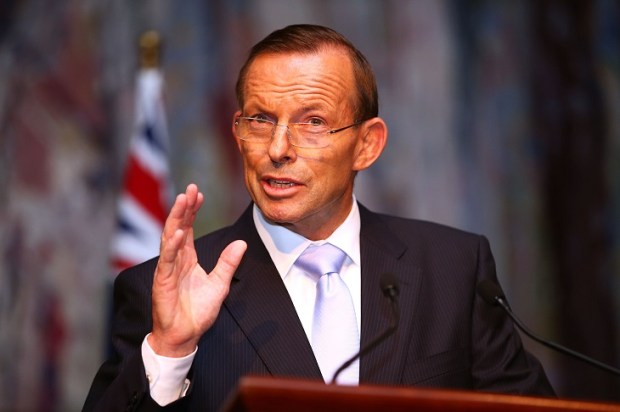Two cheers for democracy! So wrote E.M. Forster speaking for the Bloomsbury set, the affluent intellectuals who were the leading ‘Wokes’ of the 1930s. ‘Two cheers’ was a half-hearted acclamation of a political outcome that, at least in the England in which they lived, had neither delivered government shorn of Victorian traditionalism nor advanced sufficiently along a socialistic path.
The Bloomsbury set would be more pleased with ‘diversity equity inclusiveness’ slogans that have been adopted by today’s professional elites and become omnipresent in all but a handful of democracies and in nations where Islamic politics dominates.
Democracies under the rule of law better ensure civil freedoms and every legitimate government requires consent of the people. But consent can take other, albeit inferior, forms to that of democracy and even authoritarian and totalitarian regimes have often been popular. In this respect, Hitler in the 1930s would have easily won any election. Stalin’s repression was far more comprehensive but (perhaps because control over information was more complete), it is likely that the communists had popular support. And today, despotic governments, even in failed states like Cuba and Venezuela, seem to enjoy public support, though election rigging exaggerates this.
In terms of economic performance, non-democratic regimes have been amongst the most and least successful.
Hong Kong under the benign dictatorship of British Governors was arguably the world’s most successful economy from 1950 until its quasi-absorption within China. Similar success made the Pinochet regime in Chile the stand-out Latin American regime in the 1970s and 1980s. And, of course, the strong economy enjoyed by Nazi Germany in the 1930s was a key factor in the popularity of that regime.
India, as a democracy, has over the past 20 years, deregulated its trade and emerged as a fast-growing economy but spent most of its post-1947 years as an autarkic economic basket case. China too shows two sides of performance. Under Mao, it had among the least impressive economic records in the world but was transformed post-Mao when it enjoyed the most spectacular growth the world has known. The poor performance of undemocratic states was shown in the Soviet bloc nations – and is ongoing in Cuba and North Korea.
With regard to democracies, many long-standing ones like Argentina and Sri Lanka have governed themselves into economic torpor, and some like South Africa are collapsing into anarchic stagnation. Others have achieved high or relatively high growth (South Korea, Taiwan, Botswana). Successor governments to nations that comprised the Soviet bloc have mainly also shown solid growth – some like Czech Republic and Poland are vigorous democracies; Russia itself is not usually so defined but has also achieved relative prosperity.
Poor economic performance over many years by some democracies begs questions about how democratic controls might best be arranged. Are we expecting too much of democracy as it has developed?
In 19th Century US, adversarial political issues focused on centralism opposed by federalism and then issues of slavery and territorial expansion. Political differences seem minor compared to those that saw socialist redistribution (recently joined by green aspirations) ranged against an increasingly beleaguered laissez-faire ideology that characterises elections all over the world during the past 100 years.
Though communist absolutism has never come to power in direct and fair elections, we have seen accretions of power from collectivists and socialists that are seldom turned back. When Menzies campaigned to ban the Communist Party, he was conscious that if such a government came to power it would be difficult to remove, even if its policies failed to produce the wealth and happiness it promised. His views were vindicated over the following four decades.
Concerns of permanency are held for institutionalising an Indigenous ‘Voice’ within the Constitution. Even without such a guarantee various accumulated programs have proven enduring. This is notwithstanding that the $39 billion a year in program expenditures for the 3.5 per cent of people claiming to be Indigenous has failed to resolve income disparities.
The climate debate, the key driver of politics today, involves related issues. Conservatives in the climate debate (me included) often cite opinion polls that show climate concerns to be among the least important political concerns to voters. Thus, this year’s survey of climate attitudes, conducted by the University of Chicago’s Energy Policy Institute, registered only a fifth of people being prepared to pay more than $100 per month to reduce CO2 emissions (the aggregate payments are already much higher than this); over a third would oppose paying even $1.
In terms of actual willingness to pay, as evidenced by voluntary offsets by air travellers, a European study found that this is barely one per cent of the carbon price (~90 Euros) that present government policies require. An Australian survey estimated a willingness-to-pay of $15 per year for a 20 per cent reduction in their emissions from water usage; over a third of respondents were not prepared to pay anything. It is likely (as the researchers note) that sequential surveys across other goods would reveal a decline in such willingness.
Low willingnesses-to-pay to reduce emissions has long been evident. Thus, an Institute of Public Affairs commissioned survey ten years ago found that only 30 per cent of respondents were prepared to pay over $500 per year for abatement (far less than annual costs per head, even then); 37 per cent weren’t prepared to pay anything.
All this indicates that governments, throughout the world, are pressing decarbonisation policy far more strongly than their clients, the people, would prefer. But ironically, they are doing so in response to politicians’ judgments of their electorates’ preferences, the correctness of which is confirmed by actual voting.
Collectivist decisions result in a transfer of productive drives to consumptive activities, a shift that makes us poorer. This is driven by the democratic institutions that have evolved and to reverse it requires a reform of those institutions. Do we want to bring this to happen and, if so, what sort of reform is required and how do we bring it about?

























